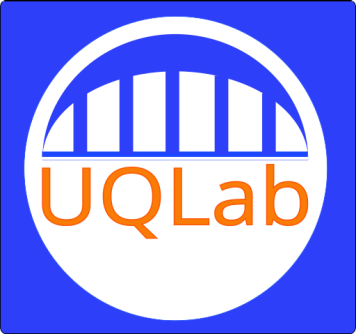UQLab
external page UQLab is a general purpose Uncertainty Quantification software developed by the Chair of Risk, Safety and Uncertainty Quantification. It comprises several open-source scientific modules, smoothly connected through UQLabCore to carry out uncertainty propagation through Monte Carlo sampling, sensitivity analysis, reliability analysis (computation of rare event probabilities), build surrogate models (polynomial chaos expansions, Kriging, low-rank tensor approximations, etc.), deploy machine learning tools (support vector machines for classification and calibration), calibrate models through Bayesian inversion, optimize systems under uncertainties (reliability-based design optimization), and more.
Since 2013, the UQLab software project has focused on providing state-of-the-art uncertainty quantification algorithms to academic users from all research fields, regardless of their backgrounds. After close to ten years of development and distribution, and around 4,000 academic users worldwide, we released the entire source code in February 2022 under the permissive BSD 3-clause license, thus opening up its distribution to industrial and commercial settings.
Since its first public release in 2015, UQLab has by now reached more than 6’000 users from more than 94 countries worldwide. Its impact on recent research is remarkable, with more than 750 citations to its official reference.
